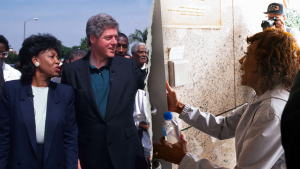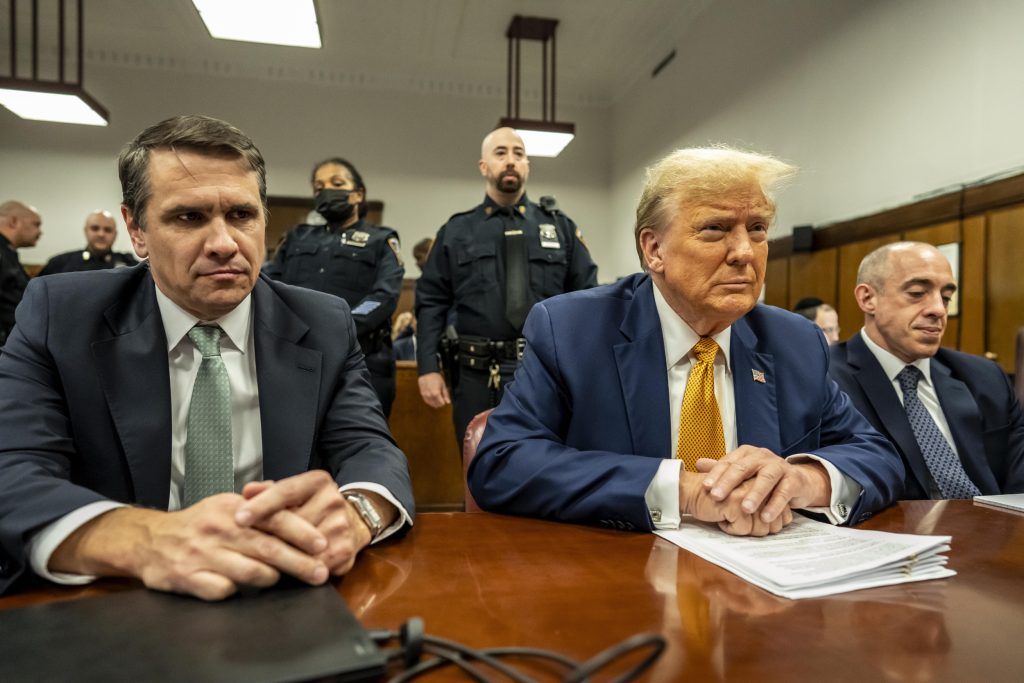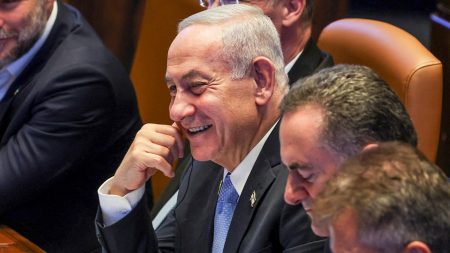The legal battle surrounding former President Donald Trump’s hush-money case has taken a dramatic turn following his recent re-election, with the Manhattan District Attorney’s office proposing an unconventional legal maneuver and Trump’s lawyers firing back with strong condemnation. The case, stemming from allegations of falsified business records related to hush-money payments made to adult film actress Stormy Daniels during the 2016 presidential campaign, resulted in Trump’s conviction on 34 counts in May. This conviction, however, has been thrown into a state of legal limbo due to Trump’s subsequent election victory, leaving the presiding judge, Juan Merchan, with the complex task of determining how to proceed.
The central issue revolves around the practical and legal implications of pursuing a criminal case against a sitting president. Judge Merchan has already postponed Trump’s sentencing, originally slated for July, indefinitely. Trump’s legal team, led by Todd Blanche and Emil Bove, has aggressively pursued dismissal of the case, initially arguing presidential immunity and subsequently citing his electoral triumph. These arguments, however, have yet to be ruled upon by Judge Merchan, leaving the case in a state of suspended animation.
Manhattan District Attorney Alvin Bragg’s office has proposed a novel solution to this unprecedented situation: abatement. This legal mechanism, typically employed in certain states like Alabama when a convicted defendant dies before exhausting appeals, effectively suspends legal proceedings. Bragg’s office argues that abatement would shield President Trump from the burdens of an ongoing criminal trial during his presidency while simultaneously acknowledging the jury’s guilty verdict. This proposal, however, has been met with vehement opposition from Trump’s legal team.
Trump’s lawyers have characterized Bragg’s suggestion as “absurd” and “irresponsible,” accusing the District Attorney’s office of drawing a disturbing analogy between Trump and a deceased defendant. In a sharply worded 23-page filing, Blanche and Bove argue that the proposal ignores established New York legal precedent and represents a fabricated solution to a complex problem. They further criticize the comparison to a deceased defendant, particularly in light of the two assassination attempts against Trump earlier in the year, one during a campaign rally in Pennsylvania and the other while golfing in Florida. While Trump remained unharmed in both incidents, his lawyers argue that the analogy is inappropriate and insensitive.
The core of the legal dispute centers on the applicability of abatement under New York law. While employed in other jurisdictions, the legal basis for utilizing this mechanism in New York remains unclear. Trump’s lawyers contend that no such precedent exists, further reinforcing their argument that Bragg’s proposal is a legally unsound attempt to circumvent established legal procedures. The defense team’s forceful response highlights the significant legal hurdles facing the prosecution as it seeks to navigate the complexities of pursuing a criminal case against a sitting president.
The ongoing legal wrangling underscores the unprecedented nature of the situation. The intersection of a criminal conviction and a presidential election has created a legal quagmire, with no clear roadmap for the courts to follow. Judge Merchan faces the daunting task of balancing the principles of justice and accountability with the practical realities of prosecuting a sitting president. The ultimate outcome of this legal battle will undoubtedly set a significant precedent for future cases involving presidents and the legal system. The clash between Bragg’s office and Trump’s legal team represents a high-stakes confrontation with far-reaching implications for the American legal landscape.










